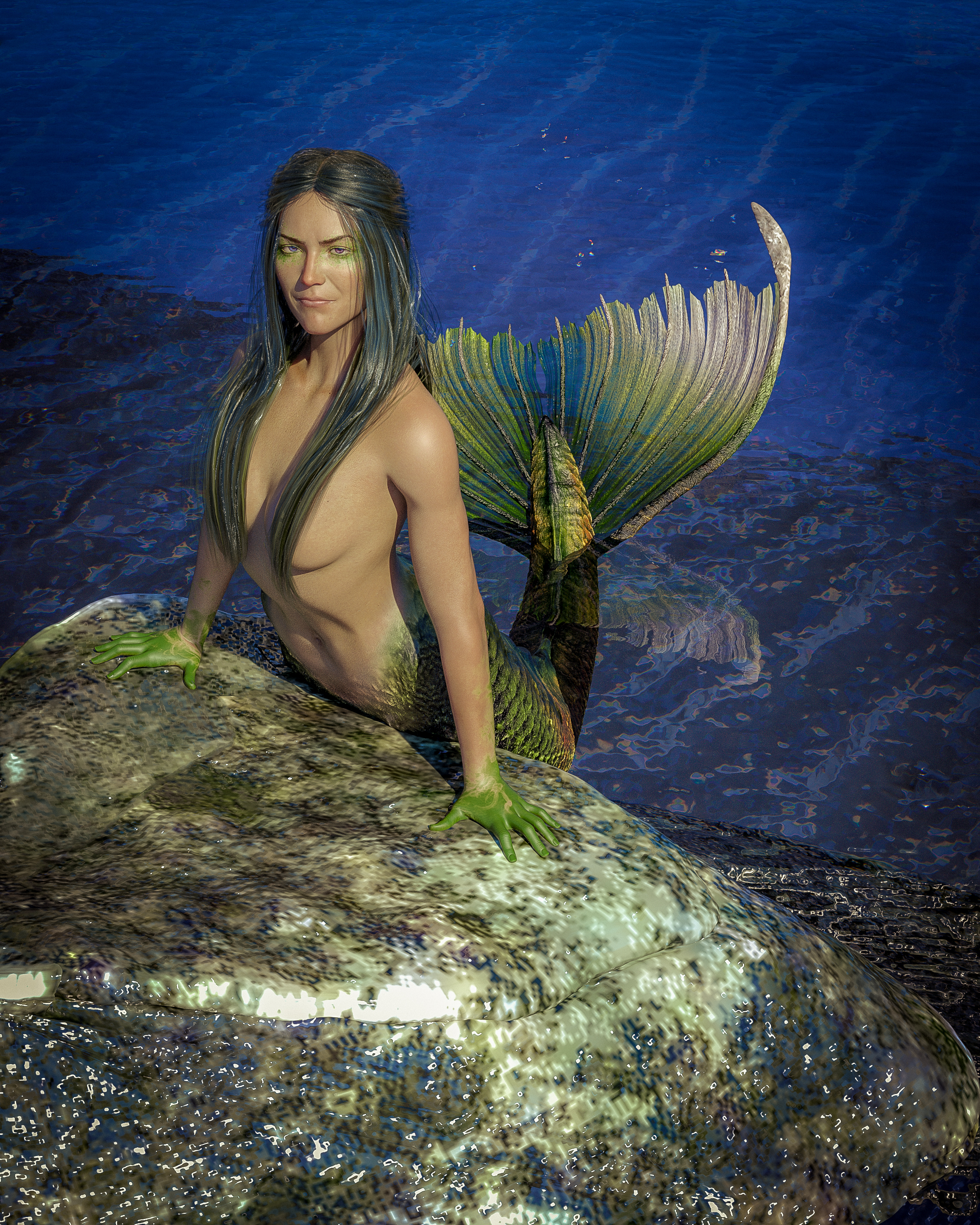Ichthyothropy
Ichthyothropy is a physiological condition in which the legs of a human or humanoid being are transformed into the tail of a fish. Afflicted individuals call themselves Merfolk.
Transmission & Vectors
The primary cause of the malady is the bite of a marine animal which has swum too deep in the The Waters of the River Without End, though the kiss of a Merfolk also does the trick.
But whether the carrier is a mermaid or a manatee, they ultimately infect other individuals in the same way: through a pathogen in their saliva or mouth-based mucus.
Causes
When the pathogen is introduced directly into the bloodstream, as in a bite, the resulting condition is nearly instantaneous and entirely irreversible. When a Merfolk’s kiss is the cause, the resulting saliva-to-saliva transmission allows the body of the newly infected individual more time to adjust. This results in a version of the condition that is controllable by the subject.
Symptoms
The primary symptom of the condition is the merging of the infected individual’s legs into a fish-like tail, with the characteristics of the tail—markings, coloration, etc.—inherited from the carrier who infected the individual.
Secondary symptoms are the development of gills on the back of the individual, the ability to breathe underwater for prolonged periods, and the ability to hide (and therefore protect) their genitalia within the confines of their tails.
The condition, for better or worse, renders merfolk sterile. So anything they choose to do with their genitals is purely for pleasure, not procreation. The only way to make more merfolk is with a bite or a kiss.
Treatment
The condition is untreatable in individuals infected through the bite of a marine animal. Individuals infected through a merfolk’s kiss may reverse the condition at will by removing themselves from water. But full submersion in water, whether intended or not, will transform them right back. So merfolk must proceed with caution when taking a swim—or a bath!
Cultural Reception
Merfolk appear in the folklore of many Earthling cultures, but the cultural reception of the condition varies. Much of Western society, influenced by a later interpretation of the Sirens of Greek mythology, have long viewed merfolk—mermaids, in particular—as nothing but a pack of ne’er-do-wells who delight in the seduction and destruction of sea-faring peoples.
Other cultures view those with the condition as mostly benevolent figures charged with the protection of bodies of water. Elven societies typically venerate Merfolk for their close connection to nature. Dwarves see them as shrewd but fair guardians of underwater resources. But Kíndallans view victims of ichthyothropy as lesser beings, given that they’ve been robbed of their ability to shape-shift into any other form.







This is a really cool interpretation of merfolk. I like the idea that it's transmitted through a bite or a kiss, and that, depending on the vector of transmission, it behaves in different ways.
Explore Etrea | March of 31 Tales
Thanks! Originally I was going to try and write them as an alien species (similar to what I did with elves and dwarves), but then I realized there was little reason for them to end up looking like the mermaids my daughter thinks of when she thinks of mermaids, so I went back to the drawing board.